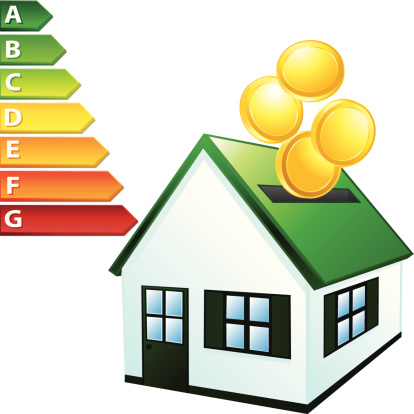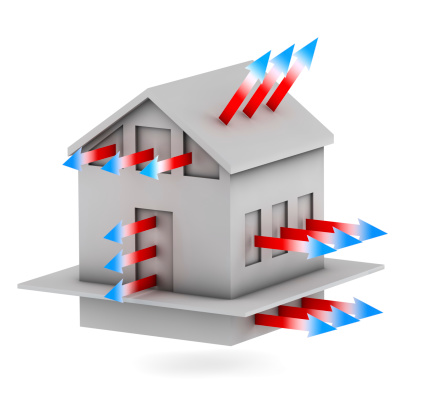 Tests in school might have made you nervous, but it's time for a new perspective. If you're determined to find out where your home is losing energy and causing your heating system to work too hard, take a quiz that you can complete in five minutes, start to finish. It will lead you directly to the answers you need to make your home more energy efficient. After doing so, you're likely to be pleasantly surprised -- but suitably rewarded -- the next time you see your utility bill.
Tests in school might have made you nervous, but it's time for a new perspective. If you're determined to find out where your home is losing energy and causing your heating system to work too hard, take a quiz that you can complete in five minutes, start to finish. It will lead you directly to the answers you need to make your home more energy efficient. After doing so, you're likely to be pleasantly surprised -- but suitably rewarded -- the next time you see your utility bill.
Round out your efforts with your own home energy audit by inspecting those notorious trouble spots that plague every home. Then, to ensure that you land at the head of the class, where you belong, contact a heating system service company to fortify your energy-saving efforts. Together, you'll find out how your heating system measures up against the natural deficiencies in your home – and triumph over them once and for all.
Learn how your home measures up
The U.S. Department of Energy – one of your best advocates in harnessing your energy bills – offers a concise Energy Star Home Energy Yardstick quiz. In just a few minutes, it assesses your energy consumption habits and utility bills before offering practical ideas for making your home more energy efficient.
Once you log in, all you have to do is supply:
- Your ZIP code
- How many people live in your home
- The square footage of your home
- The type of fuel – probably natural gas – that your home's heating system depends on
After clicking the “submit” button, you will receive a list of money-saving tips. Some may be familiar to you. For example, it's possible to reduce your heating bill by about 2 percent for every degree you normally set your thermostat. A programmable thermostat – which allows you to set your thermostat for hours and days at a time – can assist this effort immeasurably. But other ideas – based on the age and exposure of your home – might take you by surprise – and a most pleasant surprise, at that.
Let the audit begin
To approach your home energy self-audit like a conscientious student, be sure to:
- Turn off your gas-burning furnace and water heater
- Close your windows and exterior doors
- Shut the fireplace flue
- Turn off bathroom and kitchen exhaust fans
These steps won't make your home airtight, but they will give you a better reading of where the deficiencies in your home exist. To pinpoint them with certainty, grab a long-stemmed lighter or a feather. Held up against a presumed air leak, either one will instantly confirm your suspicions, especially on a breezy day. And it's worth waiting for such a day; the department of energy estimates that once you find and fix the air leaks in your home, you can expect to cut your utility bill from 5 to 30 percent a year.
Take your time and approach the plethora of trouble spots that “fight” your heating system at every turn:
- Attic hatch
- Baseboards
- Doors
- Electrical outlets
- Fireplace damper
- Junctures where walls meet ceilings
- Switch plates
- Wall or window-mounted air conditioners
- Windows and storm windows
Expect to be busy for a while sealing the leaks you find with caulk, weather stripping or insulating foam. But also expect that you might need assistance with some repairs, especially those involving sealing ducts in difficult, hard-to-reach places. In which case, you'll want Experts In Your Home in Chico to conduct a final, top-to-bottom inspection of your home – to assess its airtightness and then give it the A+ grade it undoubtedly will earn.
Are you efficiently maintaining your heating system? Make sure by downloading the free checklist below!








